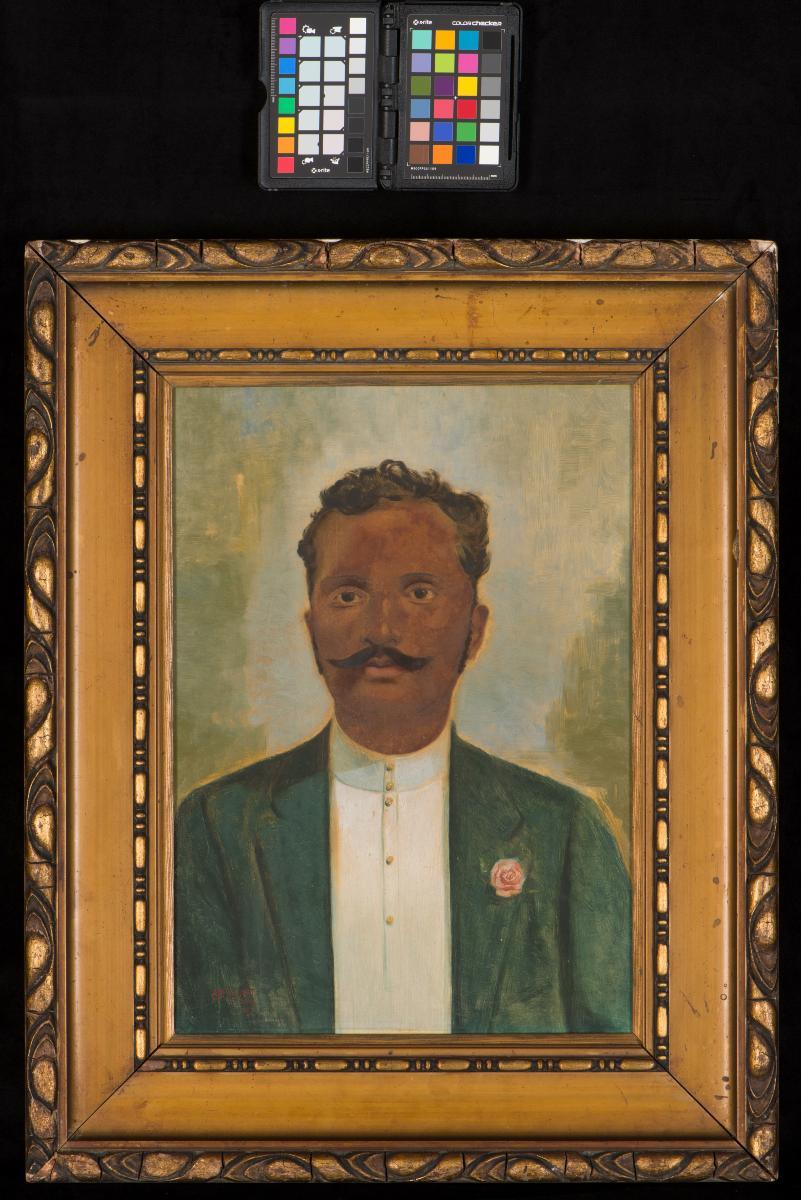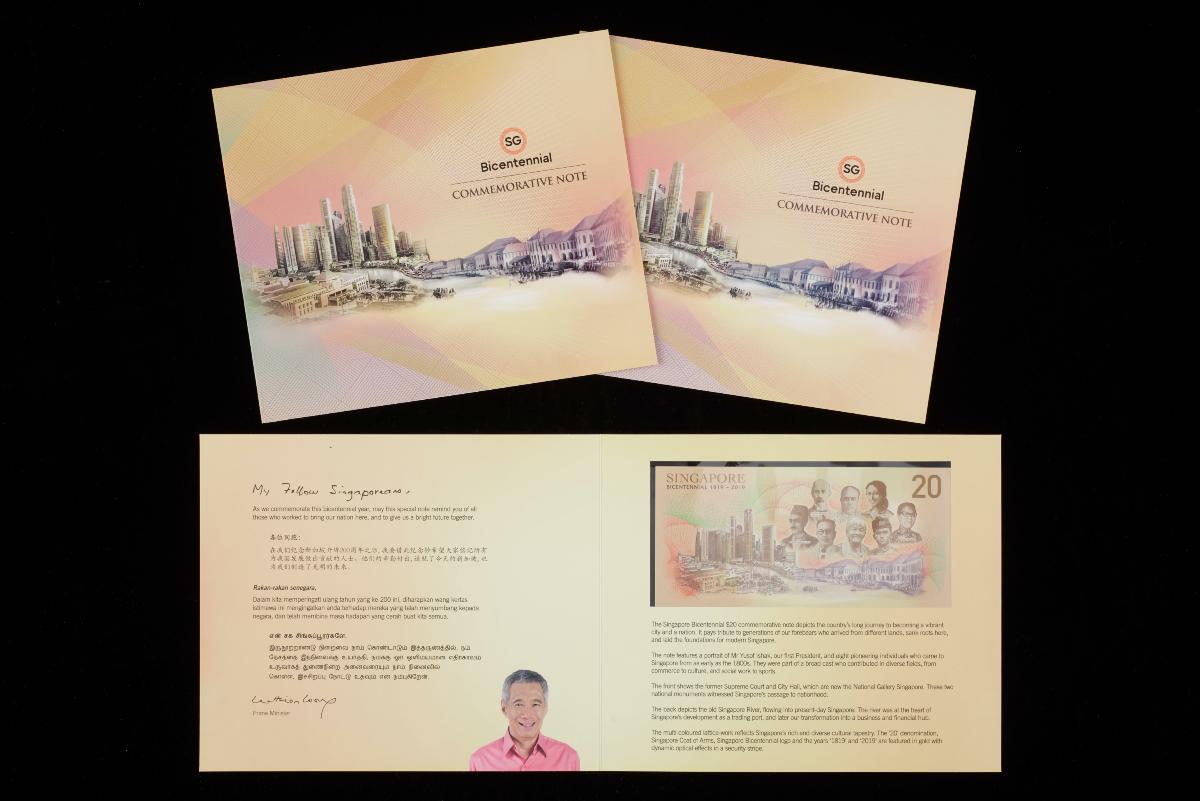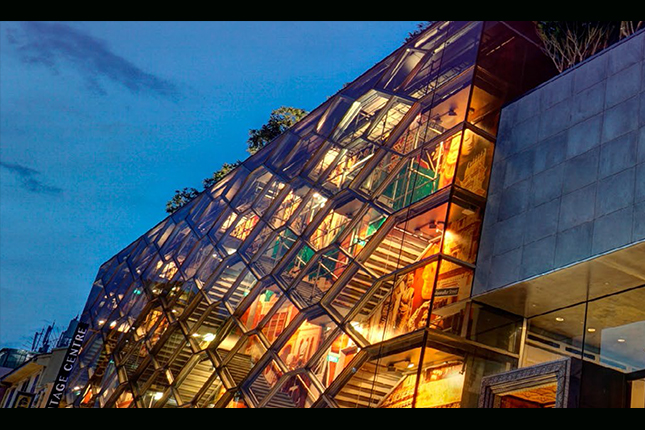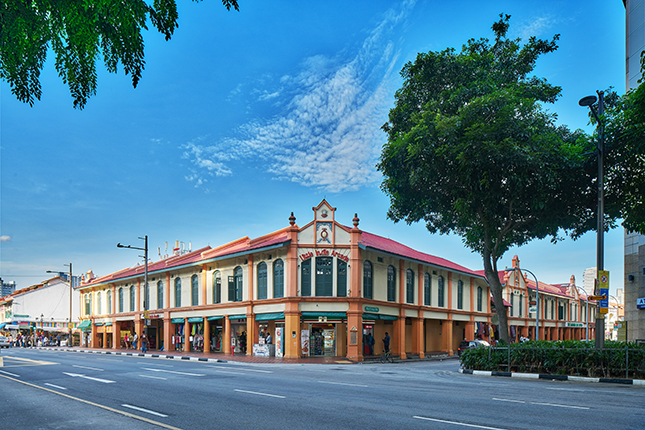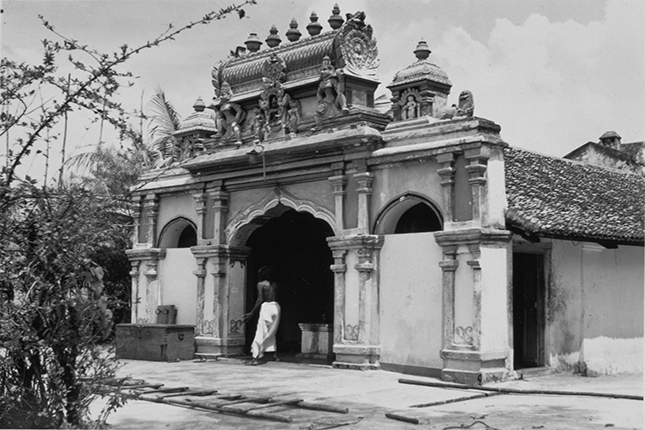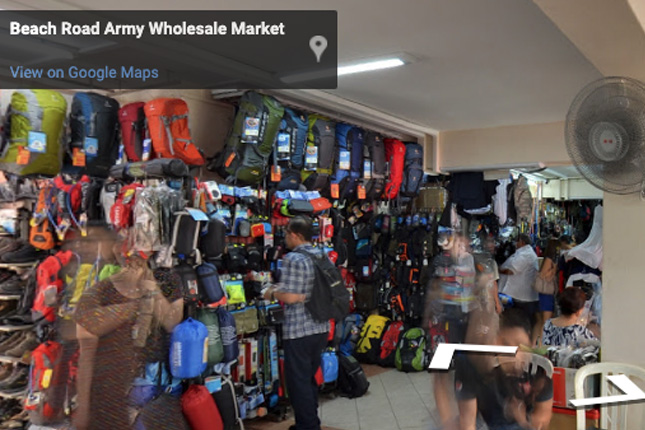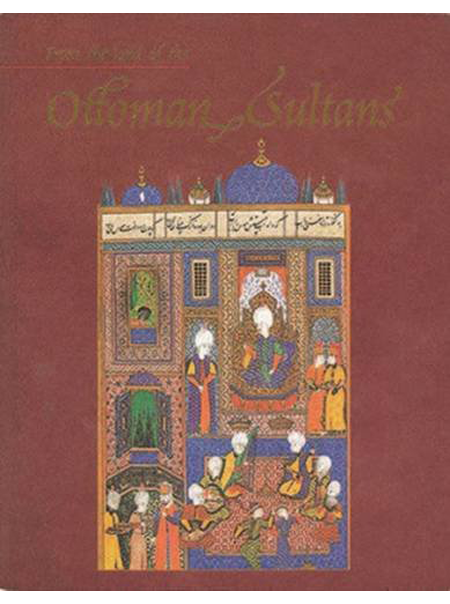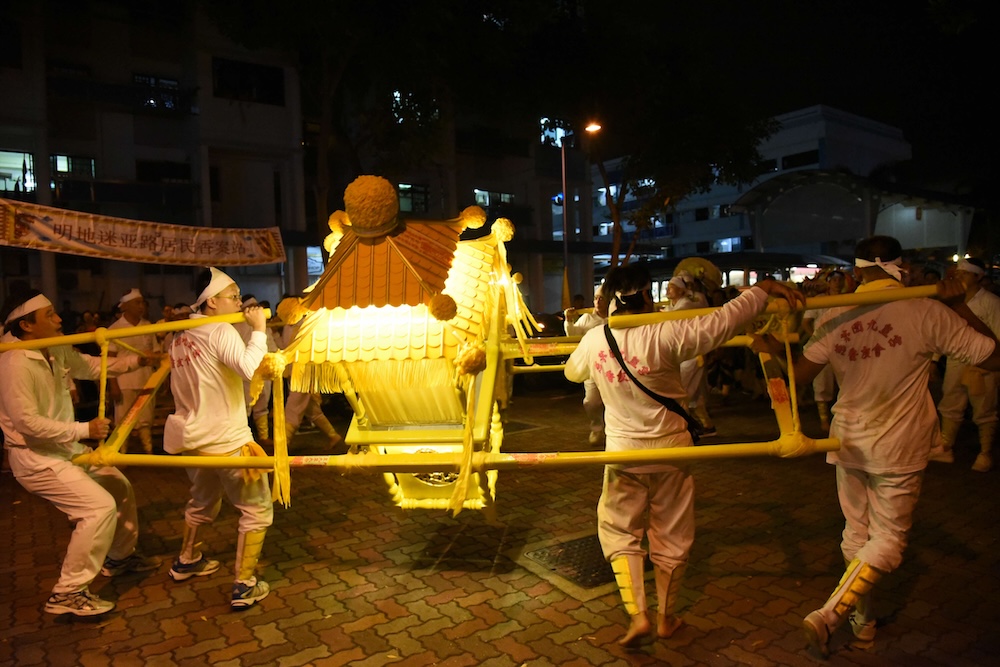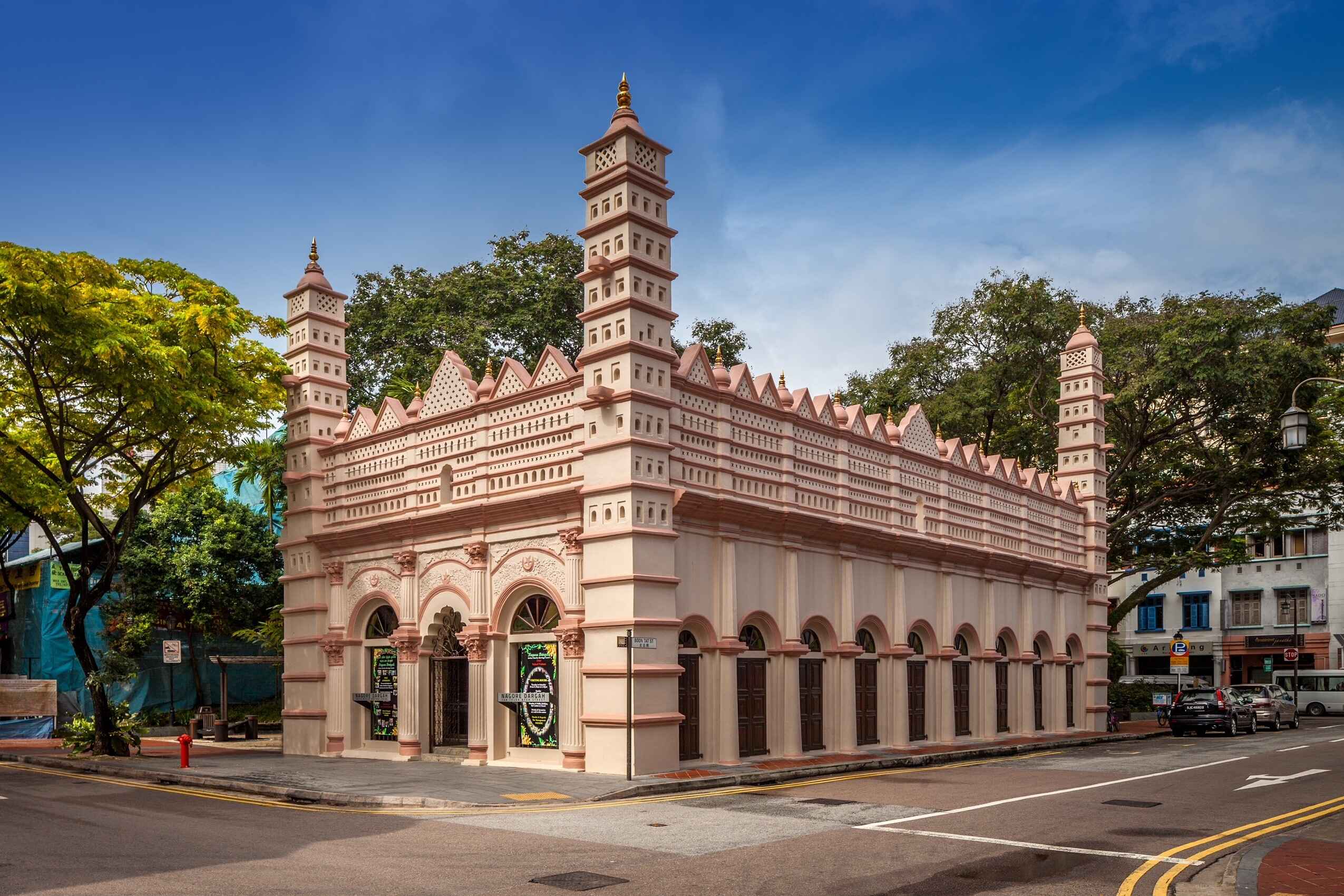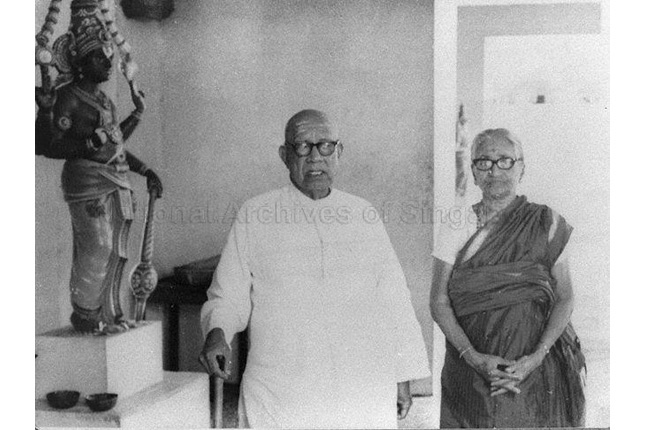 Govindasamy Pillai and his wife Packkiriammal at the Sri Srinivasa Perumal Temple. (c1970s. Image from the National Archives of Singapore)
Govindasamy Pillai and his wife Packkiriammal at the Sri Srinivasa Perumal Temple. (c1970s. Image from the National Archives of Singapore)
Humble beginnings
P. Govindasamy Pillai (1887–1980) was born in the village of Koorainadu in Tamil Nadu. He ran away from home in his teens and boarded a ship for Singapore, arriving in 1905 at the age of 18.1
Pillai found life in Singapore tough. He struggled to find employment and with just 13 rupees to his name, was unable to afford food and lodging.2 His circumstances improved somewhat after a provision store owner at 50 Serangoon Road got him to work in exchange for food and board. Pillai’s hours were punishing with work starting before the break of dawn and ending only after midnight.
Fully immersed in the world of provision shop operations, Pillai picked up the skills and knowledge needed to run the business fairly quickly. In 1929, he borrowed $2,000 to buy the store following the demise of its owner. It was a far-sighted move on the part of Pillai who had just gotten married. The lessons from his late employer were not forgotten and Pillai spent long hours fine-tuning and running the enterprise.3
Self-made millionaire
For the convenience of his customers, Pillai began selling a wider variety of products ranging from canned goods to shoes. He also opened branches in Little India. People began associating the P. Govindasamy Pillai name, which his business was named after, with convenience.
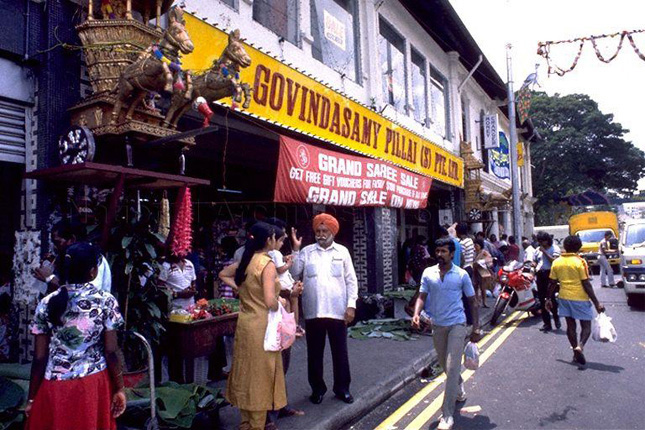 The P. Govindasamy Pillai Store or PGP Store in short at Serangoon Road. The PGP chain of stores was popular among shoppers. (c1987. Image from the National Archives of Singapore)
The P. Govindasamy Pillai Store or PGP Store in short at Serangoon Road. The PGP chain of stores was popular among shoppers. (c1987. Image from the National Archives of Singapore)
Although the business day was long — work started at 7am and ended around 9pm — Pillai took care of his staff. They were given two hour lunch breaks and lodging at his home.4
Having found his stride, Pillai began setting aside money to invest in other ventures. He opened flour and spice mills, and started five saree shops.5, 6 He also invested in properties in Serangoon Road, Race Course Road and Buffalo Road, and even managed to build houses in Little India.7
During the Japanese Occupation, Pillai’s family managed to escape unscathed but it was a different story for his properties which were destroyed during the war. Undeterred, Pillai began rebuilding his business empire, doing well enough to open PGP Stores in Malacca and Johor. By 1963, the year of his retirement, Pillai’s business was valued at S$3 million.
Pillai died at the ripe old age of 93 in 1980.
In 1998, the PGP Stores, having chalked up huge debts, were shuttered.
Investing in the community
Pillai, having been impoverished for a good part of his life, made it a point to help others throughout his life. In 1952, he paid for a new home for the Ramakrishna Mission Singapore, an organisation which renders aid to the needy. He also contributed generously to institutions such as Mount Alvernia Hospital and the University of Malaya.
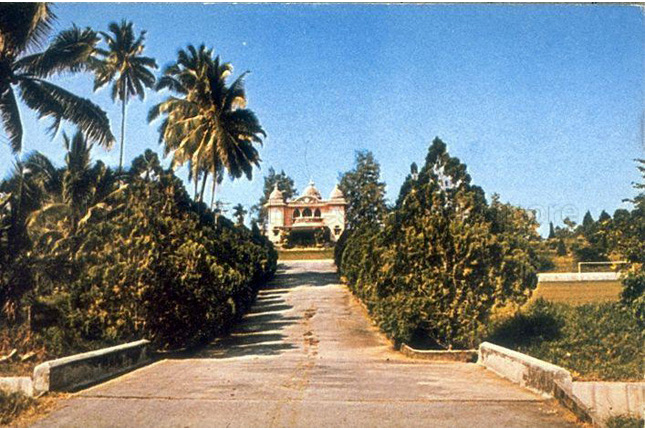 The Ramakrishna Mission Temple’s new home on Bartley Road was funded by Pillai. (c1950s. Image from the National Archives of Singapore)
The Ramakrishna Mission Temple’s new home on Bartley Road was funded by Pillai. (c1950s. Image from the National Archives of Singapore)
In the 1970s, Pillai donated $300,000 towards the construction of a new gopuram (entrance tower) for the Sri Srinivasa Perumal Temple at Serangoon Road.8
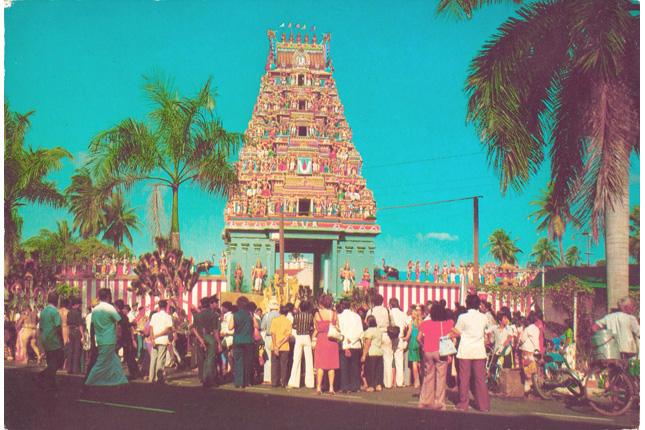 Pillai funded the construction of the Sri Srinivasa Perumal Temple’s magnificent five-tiered entrance tower. The temple was gazetted as a national monument in 1978. (c1977. Image from the National Museum of Singapore)
Pillai funded the construction of the Sri Srinivasa Perumal Temple’s magnificent five-tiered entrance tower. The temple was gazetted as a national monument in 1978. (c1977. Image from the National Museum of Singapore)









